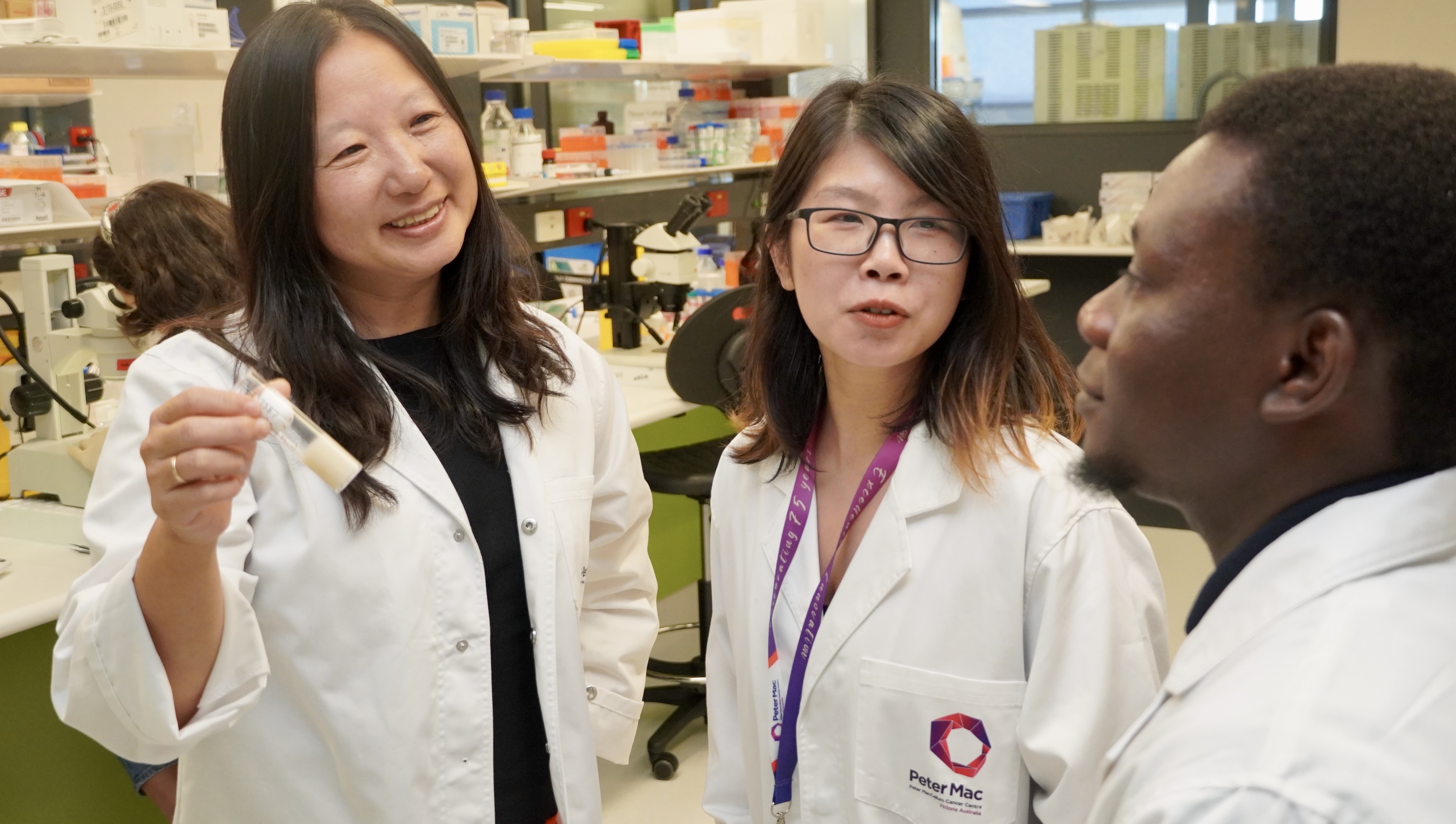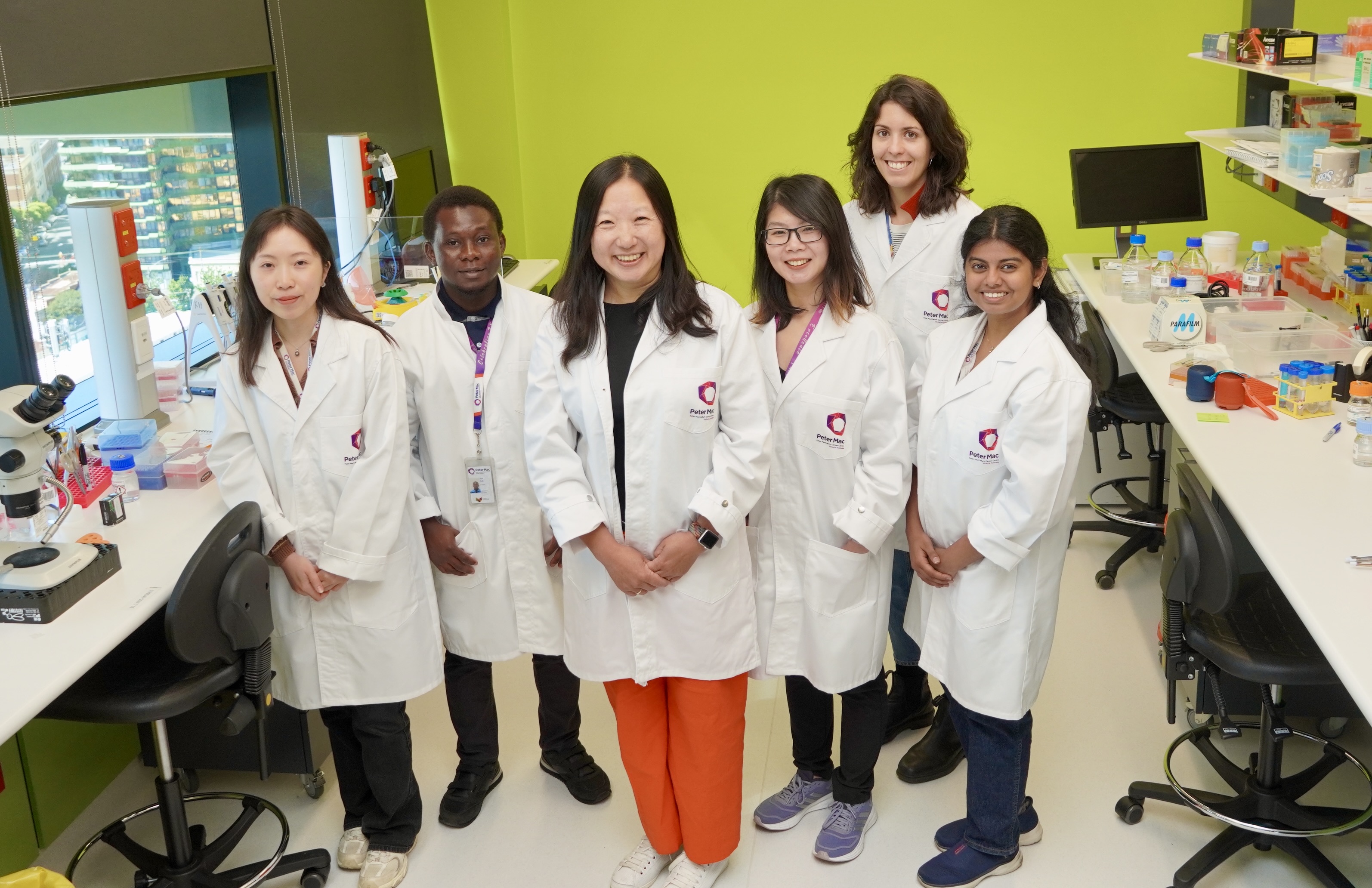Associate Professor Louise Cheng, recipient of the 2024 NHMRC Marshall and Warren Ideas Grant Award, is a group leader at the Peter MacCallum Cancer Centre and the Department of Anatomy and Physiology at the University of Melbourne. Her lab utilises the fruit fly (Drosophila) to study how tumours grow at the expense of other tissues in cancer cachexia- a metabolic syndrome affecting up to 80% of people with advance cancer.
The term 'cachexia' originates from the Greek words meaning 'bad condition'. It is a debilitating syndrome that has affected patients for centuries, with one of the most well known modern examples being Mr Steve Jobs - his gaunt appearance in his later years was a result of cachexia caused by pancreatic cancer.

Cachexia significantly impacts a patient’s ability to withstand therapy. Many individuals suffering from this syndrome are often too weak to undergo treatment, or they may be forced to abandon treatment halfway through. This, in turn, leads to poorer treatment outcomes and a diminished quality of life, as patients experience extreme fatigue and muscle weakness due to the progressive loss of body mass.
“Despite its severe consequences, there are currently no effective methods for diagnosing cachexia, nor are there any effective treatments. I believe the fundamental issue is our lack of understanding regarding the biological mechanisms that drive cachexia.”
Specifically, we do not yet comprehend how tumours send signals that lead to the breakdown of muscle and fat, nor do we fully understand why such a process is beneficial for the tumour. This gap in knowledge makes it challenging to develop targeted interventions that could alleviate the condition.
Our research is focused on 2 complementary approaches aimed at unravelling the mechanisms underlying cachexia. The first approach involves using the fruit fly, Drosophila melanogaster, as a genetic model organism to study the complex inter organ communication between tumours, fat, and muscle. Although humans and Drosophila are separated by millions of years of evolution, the core genetic pathways regulating metabolism are highly conserved across species. This allows us to leverage insights gained from model organisms to better understand human diseases.
“By identifying key metabolic changes and inter organ crosstalk networks in Drosophila, we can rapidly pinpoint the most promising molecular candidates for further study in mammalian systems.”
To complement our genetic research, we also analyse human patient samples, particularly from individuals with colorectal cancer. Our goal is to determine whether the tissue communication mechanisms identified in Drosophila are also at play in human patients who suffer from, or are at risk of developing, cachexia as their cancer progresses. This aspect of our work is only possible due to the generosity of patients who donate their tissue samples, enabling us to conduct research at the Peter MacCallum Cancer Centre. Additionally, our collaborations with dedicated clinical colleagues, including radiologist Dr Hyun Ko and colorectal surgeon Professor Sandy Heriot, are instrumental in advancing this research.

By identifying evolutionary conserved mechanisms that drive cachexia, we aim to discover the most relevant molecular targets for both diagnostic and therapeutic applications.
“The ultimate goal is to develop biomarkers that can detect cachexia early, as well as interventions that can mitigate or prevent the devastating effects of this syndrome in cancer patients.”
For early career researchers, my advice is to follow your passion and choose research topics that genuinely interest you. Curiosity driven science, where we seek to understand fundamental biological processes, often leads to the most groundbreaking discoveries. It is also important to remain open minded; some of the most unexpected results in research turn out to be the most fascinating and impactful.
My own journey in science has been shaped by a diverse set of experiences. I grew up in an academic family in China, moved to Australia as a teenager, and later pursued my PhD and postdoctoral training in the United Kingdom. Over the years, I have worked on a variety of scientific questions using different model organisms.
“I strongly believe that exploring diverse research topics and shifting perspectives enhances creativity and fosters innovative thinking.”

For early career scientists, I highly recommend experiencing science in different countries and collaborating with researchers from various disciplines. These experiences can provide unique insights and lead to more creative solutions to longstanding scientific challenges.
Through our ongoing research, we hope to shed light on the mysteries of cachexia, ultimately paving the way for effective treatments. Given that unintentional weight loss is one of the most common signs of cancer, understanding the drivers and mechanisms of cancer cachexia also has the potential to lead to earlier cancer diagnosis and more effective cancer treatment.